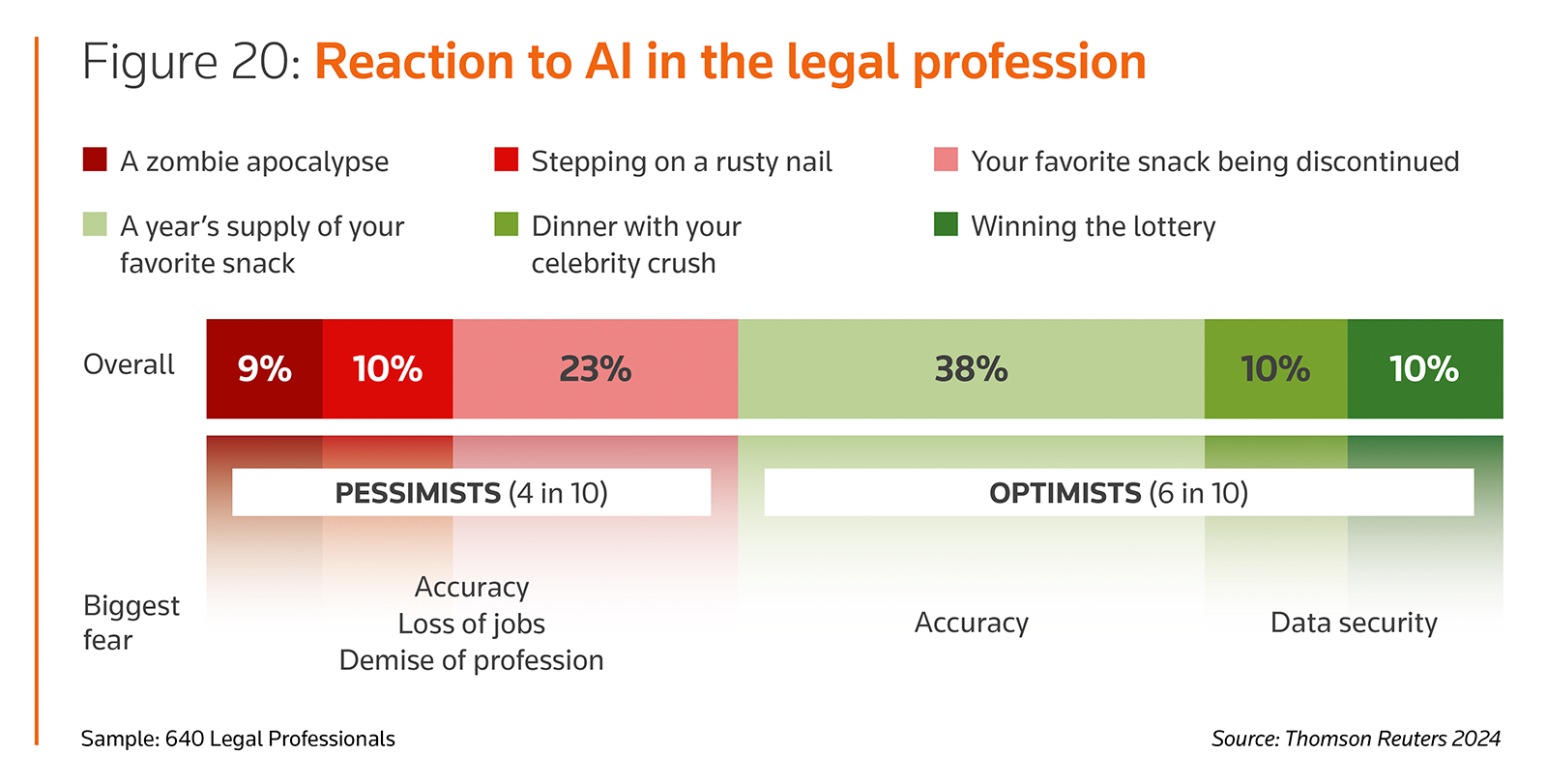AI Insights from the 2024 Report on the State of the US Legal Market

AI is transforming every aspect of work across industries, and Thomson Reuters is at the forefront of revolutionizing how legal professionals work.
The 2023 launch of AI-Assisted Research on Westlaw Precision was the first in a series of key legal product rollouts integrating generative AI. Later this month, generative AI capabilities will be introduced in Practical Law, and drafting capabilities will roll out in the first half of 2024. These product-development efforts come as Thomson Reuters integrates the Casetext acquisition and CoCounsel Core into its portfolio.
With Thomson Reuters making significant investments in AI and leading how the technology will transform the legal profession, a new report shows how fundamental shifts in the legal market, plus the rapid emergence of generative AI, may upend traditional law firm business models. The 2024 Report on the State of the US Legal Market, from Thomson Reuters and the Center on Ethics and the Legal Profession at Georgetown Law, considers how the legal industry’s use of AI may be a bellwether of the changing professional landscape.
Leading legal journalists have emphasized the report’s AI findings.
“If you only read one part of the report, skip ahead to the hypothetical generative AI scenarios,” Jean O’Grady advised in her coverage of the report. Noting the legal industry is in “the early days of AI adoption,” O’Grady added, “Most firms are still grappling with an array of ethical and client disclosure issues which accompany any adoption of Generative AI. However the report warns leaders against ignoring the potential disruption to the traditional law firm business models.”
Karen Sloan’s report recap also called out the potential impact of AI, noting: “The rise of generative artificial intelligence also promises major shifts that could affect staffing and profitability, though it remains unclear how that technology will ripple through the legal industry, the authors wrote. Clients could use AI to perform more work in house, or it could enhance efficiency and profits for both clients and firms, the report said.”
Global Legal Post’s coverage also highlighted the report’s generative AI scenarios, with Victoria Basham noting: “But it [the report] noted that most law firms are already working toward a way of using generative AI that enhances both client value and law firm profits by increasing efficiency and reducing costs for firms, while enabling higher-quality advice and faster service.”
While the report’s three AI scenarios underscore the uncertainty around exactly how the technology will shape the legal profession, what’s clear is that law firms must be willing to adapt to change.
“Being adaptable is imperative for 2024,” said Paul Fischer, president, Legal Professionals, Thomson Reuters, sharing his perspective on the report on LinkedIn. “Generative AI and large language model tools are poised to affect multiple aspects of law firms’ operations – from lawyer headcount and law firm service delivery to pricing and beyond.”
For more on how law firm leaders are responding to the impact of AI and other changes in the legal landscape, download the 2024 Report on the State of the US Legal Market. Also, sign up on TR.com/AI for updates on how Thomson Reuters is integrating generative AI across its legal solutions.